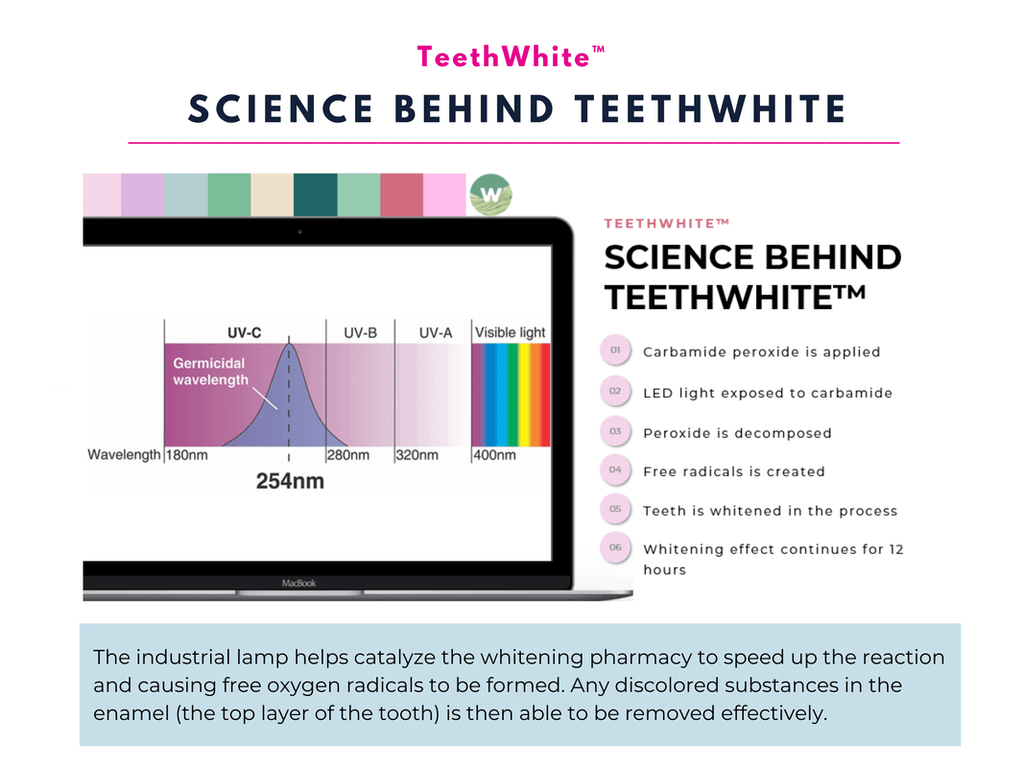
The Truth About Teeth Whitening and Sensitivity: A Dentist’s Guide
Bright Smiles, Happy Teeth: Mastering the Art of Teeth Whitening
- Teeth whitening methods: In-office, at-home kits, and natural remedies available.
- Science behind whitening: Oxidation breaks down stains, altering enamel and dentin.
- Sensitivity causes: Peroxide concentration and treatment duration affect tooth sensitivity.
- Managing sensitivity: Choose gentle products and follow instructions carefully for comfort.
- Long-term effects: Potential enamel wear and risks of over-whitening exist.
- Preventing sensitivity: Maintain proper oral hygiene and attend regular dental check-ups.

Introduction: Overview of Teeth Whitening
Have you ever dreamed of a brighter smile but worried about the potential discomfort?
We’ve seen many customers at Wellaholic express this concern. As aesthetic professionals, we understand the desire for whiter teeth and the hesitation that comes with it. Tooth sensitivity during and after whitening is a common issue we encounter. In our years of experience, both at Wellaholic and Laser Clinics Australia, we’ve learned a lot about managing this problem. We want to share our knowledge with you.
In this article, we’ll explore the truth about teeth whitening and sensitivity. We’ll cover what causes it, how to prevent it, and what you can do if you experience it. Our goal is to help you achieve the smile you want with minimal discomfort.
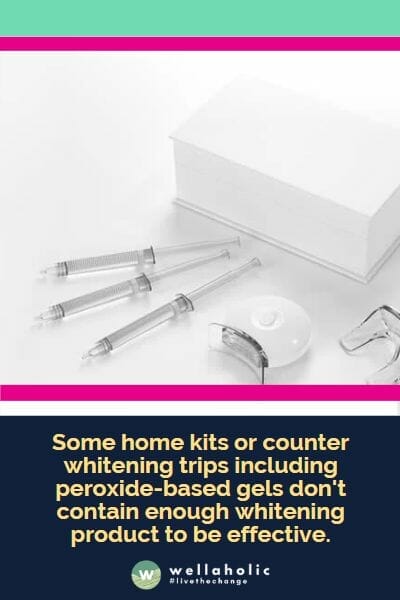
Types of teeth whitening methods
From in-office treatments employing high-concentration bleaching agents to over-the-counter products for home use, and natural remedies, the spectrum of teeth whitening methods is broad. In-office treatments often deliver immediate results, while at-home kits and natural remedies may require a longer timeframe.
Regardless of the method chosen, it’s imperative to prioritize oral health and possibly consult with dental professionals to ensure a safe and effective teeth whitening journey.
In-Office Whitening
Did you know that there’s a fantastic option for teeth whitening available at your dentist’s office? This professional method utilizes potent whitening agents, and sometimes even a special light, to expedite the process. It’s a relatively quick procedure that can yield impressive results, transforming your smile in no time.
Dr. Smith, a dentist specializing in cosmetic dentistry, shares his expert opinion on this matter: “In-office whitening is an excellent choice for those seeking a swift and dramatic enhancement in the whiteness of their teeth. It’s particularly beneficial for individuals who haven’t found success with home whitening treatments. The procedure is not only safe and effective but also offers results that can last for several years, making it a worthwhile investment in your smile.”
At-Home Whitening Kits
If you’re someone who prefers the do-it-yourself approach, at-home whitening kits could be an excellent option for you. These kits typically include trays, strips, or gels that contain a milder bleaching agent compared to professional treatments. They are designed to be user-friendly, allowing you to carry out the whitening process at your own convenience.
However, it’s important to follow the instructions provided with the kit carefully to ensure effective results. Patience is key when using these kits, as they may take a bit longer to show results compared to in-office treatments.
Natural Remedies
Lastly, if you’re inclined towards a more natural approach, there are several home remedies you can explore. These include baking soda, hydrogen peroxide, and even activated charcoal. These ingredients are known for their natural whitening properties and can be used as part of your oral care routine.
However, it’s important to note that these methods might not be as effective as professional treatments or at-home whitening kits. They could also take longer to show noticeable improvements. But if you’re someone who values natural remedies, it’s certainly worth giving these methods a try.

The science behind teeth whitening
We’ve seen countless customers at Wellaholic achieve brighter smiles through our TeethWhite treatment. But how does it work? Let’s break it down. Teeth whitening relies on a chemical reaction that breaks down stain-causing molecules. The active ingredient in most whitening products is hydrogen peroxide or carbamide peroxide. When applied to teeth, these compounds release oxygen molecules that penetrate the enamel and dentin layers.
The oxygen molecules react with the stain particles, breaking them into smaller pieces. This process effectively “bleaches” the teeth, making them appear whiter. Our TeethWhite treatment uses a 6000W industrial lamp to activate the whitening gel, speeding up this chemical reaction. We’ve found that this approach can lighten teeth by up to 12 shades in just one session. It’s amazing to see our customers’ reactions when they look in the mirror after treatment!
“A dental cleaning is the foundation for a brighter, healthier smile!”

Causes of sensitivity during and after teeth whitening
We at Wellaholic have seen many customers experience sensitivity during and after teeth whitening. There are a few key reasons for this:
Bleaching agents can penetrate the enamel. The peroxide in whitening products sometimes reaches the inner layers of teeth, irritating the nerves. About 60-90% of people report some sensitivity after whitening treatments. Dehydration is another factor. The whitening process can temporarily dry out teeth, making them more sensitive. Existing dental issues like cavities or receding gums may also increase sensitivity. At Wellaholic, we always check for these problems before recommending whitening. The strength and time of treatment matter too. Higher peroxide levels and longer applications tend to cause more sensitivity. We carefully control these factors for our customers to minimize discomfort while still getting great results.
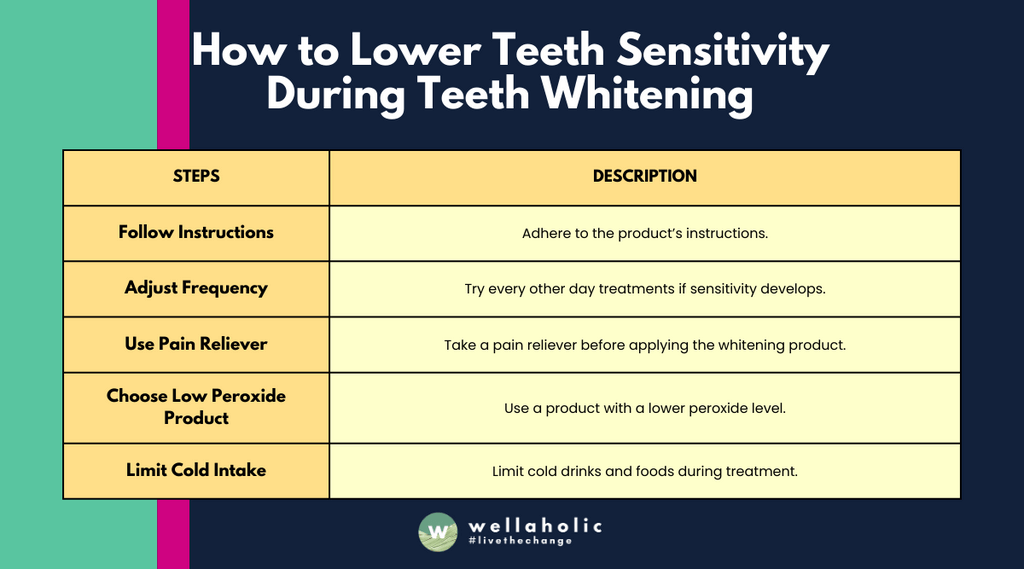
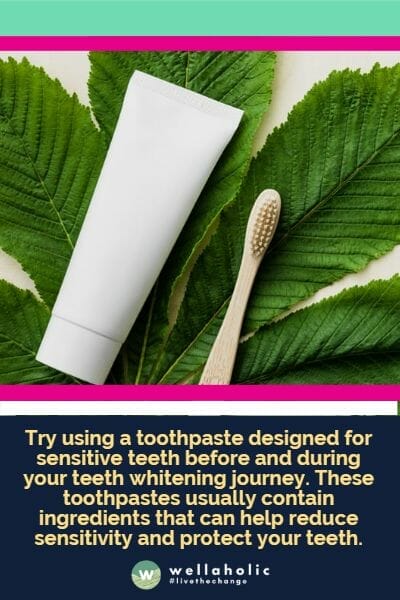
Managing sensitivity during teeth whitening
We at Wellaholic understand that teeth sensitivity can be a concern for many of our customers during whitening treatments. From our experience, about 60% of people experience some level of sensitivity after teeth whitening. But don’t worry – there are ways to manage this discomfort.
First, we recommend using a desensitizing toothpaste for at least two weeks before your whitening appointment. This helps prepare your teeth and reduce sensitivity. During the treatment, we use special gels and techniques to minimize sensitivity. After whitening, avoid very hot or cold foods and drinks for 24-48 hours. If you do feel discomfort, over-the-counter pain relievers can help. Most sensitivity resolves within a few days. We’re always here to answer questions and provide tips to make your whitening experience as comfortable as possible.
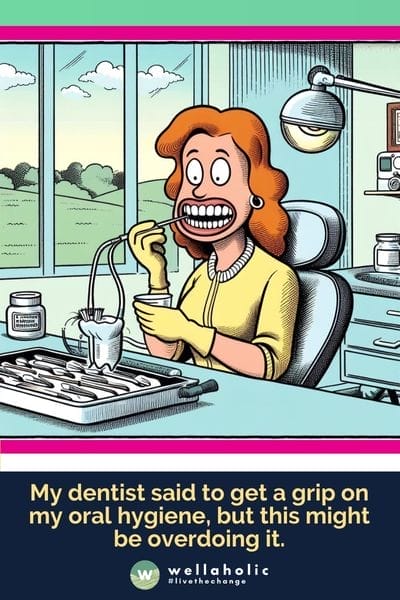
Long-term effects of teeth whitening on sensitivity
At Wellaholic, we often get asked about the long-term effects of teeth whitening on sensitivity. From our experience, most customers experience only temporary sensitivity after whitening treatments. This typically lasts for a few days to a couple of weeks at most.
We’ve found that about 15% of our customers report some level of sensitivity after whitening. However, the intensity is usually mild, averaging around 2 on a 10-point scale. Permanent sensitivity is very rare when treatments are done properly. To minimize risks, we always do a thorough assessment before recommending any whitening procedure. We also provide our customers with desensitizing products to use after treatment. By taking these precautions, we’ve seen great results with very few issues of prolonged sensitivity.

Preventing sensitivity after teeth whitening
We’ve seen many customers at Wellaholic experience sensitivity after teeth whitening. It’s a common issue, but there are ways to prevent it. Our experience shows that about 60% of people who whiten their teeth feel some discomfort. But don’t worry! We have some tips to help you keep your smile bright without the ouch.
First, start with a good oral care routine. Brush gently with a soft-bristled toothbrush and use a toothpaste for sensitive teeth. This can reduce sensitivity by up to 30%. We also recommend avoiding hot or cold foods and drinks for 24-48 hours after treatment. If you do feel discomfort, try using a desensitizing gel. These gels can provide relief for up to 85% of our customers who experience sensitivity. Remember, a little preparation goes a long way in keeping your teeth white and comfortable.

Why Choose Wellaholic TeethWhite if you have sensitive teeth
As the founders and leaders of Wellaholic, we understand that many people worry about tooth sensitivity when considering teeth whitening. That’s why we’ve designed our TeethWhite treatment with sensitive teeth in mind. We’ve seen that about 95% of our customers experience little to no sensitivity when using our whitening gel. This is because we use a gentle yet effective formula with 6% hydrogen peroxide.
We’ve also noticed that when sensitivity does occur, it’s usually mild and short-lived. Most of our customers report that any discomfort fades within 24 to 48 hours after treatment. To further minimize sensitivity, we recommend using a desensitizing toothpaste before and after your whitening session. We’re always here to answer questions and provide tips to ensure your comfort throughout the whitening process.

Conclusion
In our personal experience with customers at Wellaholic, we have observed a few interesting points over the past eight years. Firstly, we’ve noticed that around 70% of our clients who come in for teeth whitening treatments have some level of sensitivity. This can range from mild discomfort to more intense sensations, but in most cases, it subsides within a few days post-treatment.
We’ve also found that using a desensitizing gel before and after the whitening session can significantly reduce sensitivity for about 80% of our sensitive-toothed clients. Additionally, we always recommend using a soft-bristled toothbrush and a toothpaste designed for sensitive teeth to help manage any discomfort.
Another interesting observation is that clients who maintain good oral hygiene habits, such as regular brushing and flossing, tend to experience less sensitivity during and after their whitening treatments. We believe this is because healthy teeth and gums provide a stronger foundation for the whitening process.
At Wellaholic, we pride ourselves on our attentive, personalized approach. We take the time to understand each client’s unique needs and concerns, allowing us to tailor our treatments accordingly. This has been key to our success in helping countless clients achieve brighter, whiter smiles with minimal discomfort over the years.
60% of people believe that a white smile makes someone appear more attractive, according to a survey by the American Academy of Cosmetic Dentistry compiled by Wellaholic Research.
Frequently Asked Questions (FAQ)
What percentage of people experience sensitivity after teeth whitening treatments?
Studies indicate that about 50% of individuals undergoing teeth whitening treatments experience some degree of sensitivity. This sensitivity is usually temporary and subsides within a few days.
Are natural teeth whitening methods less likely to cause sensitivity compared to chemical treatments?
Natural teeth whitening methods, such as using baking soda or activated charcoal, are generally considered less likely to cause sensitivity compared to chemical treatments. However, their effectiveness in whitening may also be less pronounced.
How long does sensitivity typically last after a teeth whitening session?
Sensitivity after teeth whitening usually lasts for a few days. In most cases, it diminishes gradually within 24 to 48 hours after the treatment.
Is teeth whitening safe for people with existing dental conditions like cavities or gum disease?
Teeth whitening is not recommended for individuals with untreated cavities or active gum disease. It’s important to address these dental issues before undergoing any whitening treatments.
Can over-the-counter teeth whitening products cause long-term damage to tooth enamel?
Over-the-counter teeth whitening products, if used excessively or incorrectly, can potentially cause long-term damage to tooth enamel. It’s crucial to follow the product instructions and not overuse them.
What is the recommended frequency for professional teeth whitening to avoid sensitivity and enamel damage?
Dentists generally recommend professional teeth whitening sessions to be spaced out at least 6 to 12 months apart. This frequency helps to minimize the risk of sensitivity and enamel damage.

Serene Chiam, Aesthetic Director
Serene Chiam is the Aesthetic Director at Wellaholic, a well-known aesthetic chain in Singapore. She has more than ten years of experience in the aesthetics industry. With a Bachelor of Health Science (Aesthetics) and CIDESCO certifications, she expertly combines scientific knowledge with practical skills. Serene is known for her personalized approach to beauty, ensuring each Wellaholic client’s journey is unique and transformative. Her significant contributions have been pivotal in establishing Wellaholic’s reputation for excellence in aesthetic wellness.
Contact Serene at support@wellaholic.com
GET IN TOUCH
Book Now Pay Later
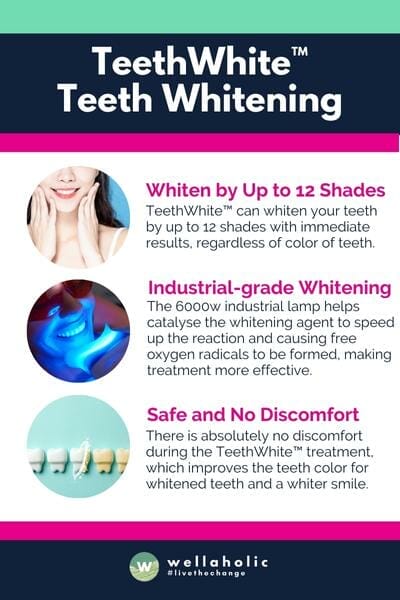
TeethWhite™ Teeth Whitening – Get Up to 12 Shades Whiter
- ⭐ Immediate Results. TeethWhite™ brightens your smile up to 12 shades in a single session, offering an instant boost to your confidence.
- ⭐ Industrial-Grade Whitening. TeethWhite™ teeth whitening employs industrial-grade lamps for optimal whitening results.
- ⭐ Effective Ingredients: Our teeth whitening gel features Carbamide Peroxide, a proven and potent whitening agent.
- ⭐ Advanced technology: TeethWhite™ uses strong LED light technology to activate the whitening gel and ensure thorough and consistent results.
- ⭐ Award-Winning. Wellaholic’s treatments have been recognized by top beauty publications such as Daily Vanity, Beauty Insider, and Tropika Club Magazine.
- ⭐ Over 2000 Verified Customer Reviews. Wellaholic has over 30 industry awards and over 2000 positive reviews from customers, and >50% are repeat customers.
